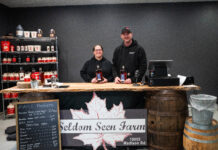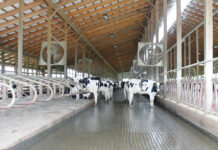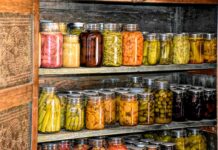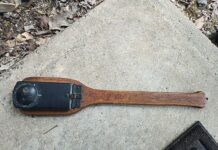I began feeding wild birds during the winter of 1978-79 while living in Lansing, Michigan.
I was a graduate student and money was tight, but I felt I should feed birds to help them through the winter.
That winter turned out to be a record setter; Michigan State University actually shut down for the first time in its history. So my feeding station was a big hit.
I’ve been feeding birds ever since, but my motivation has changed.
I’ve learned over the years that only during certain unusual, and fortunately infrequent, weather events, does supplemental food actually help birds (more about this later).
Popular pastime
Feeding backyard birds has become an extremely popular pastime. According to the most recent survey (2011), more than 52.8 million Americans over the age of 16 fed birds and other wildlife around their homes.
In doing so they spent more than $5 billion on food, feeders, baths, and other accessories.
A 2015 paper in the journal Conservation Physiology by a group of biologists from Millikin University in central Illinois, reported the effects of bird-feeding on the health of wild birds.
They opined that the most popular reason for feeding birds was to “help them.”
When the health of individual birds from forested areas with access to bird feeders were compared to areas with no supplemental foods, they found that birds with access to feeders were healthier. No surprise there.
Finding food was easy and measured stress levels were low. Ten months after the feeders were removed from the study sites, however, the health differences among study sites disappeared.
Furthermore, there was no evidence that supplemental foods help birds live longer.
These findings reinforce the work of Stanley Temple and Margaret Brittingham from the late 1980s and early 1990s. They studied banded populations of black-capped chickadees in Wisconsin.
They found no dependence on feeders and no differences in winter survival between birds with access to feeders and those without access to feeders.
They also reported that even when birds had access to feeders, they got only 21 percent of their food from them. It should be intuitively obvious that life is easier for birds with access to extra food, but it’s not a matter of life and death.
Birds are simply smart enough to take advantage of seemingly infinite supplies of easy to find foods.
Entertainment
Getting back to the point of this column, I stopped feeding birds years ago to “help them.” They don’t need our help.
There’s almost always plenty of natural foods to supply their needs.
I continue to feed birds because food attracts them to places I can see them and because I enjoy them. Birds entertain me.
Every day as I sit at my desk, I watch birds come and go from a feeder that hangs less than 12 feet away. With binoculars, I can count feathers and closely inspect their physical appearance.
I feed birds because they make me smile. And sometimes I feel they think favorably of me.
Chickadees, titmice, and nuthatches in particular come close when I “pish” to announce the feeders have been filled. I never tire of close encounters with wild, free-flying birds.
I’m certain anyone who has been feeding birds for at least a few years will understand my point of view.
On the other hand, if you’ve never hung a bird feeder, give it a try. You don’t even need to buy a feeder.
A heavy old plate or ashtray will do. Just place it where it’s easy to see and sprinkle it with black-oil sunflower seeds, and you’ll soon realize birds can be great friends.
As I teased earlier, there are some conditions under which providing food can help birds survive extreme conditions.
Winter birds
Heavy snow and ice storms can devastate winter birds because food is literally locked away. Well-stocked feeders solve that problem.
Winter birds must eat enough each day to get them through the night. At dawn the metabolic furnace is empty; birds must eat to survive.
Two days with no food due to ice or snow coverage is certain to kill many birds. Next week I’ll review the basics of “who eats what” and the feeders they prefer.












